Illustration by Marta Pucci
Bringing women’s opportunities to VCs
Pitching female health
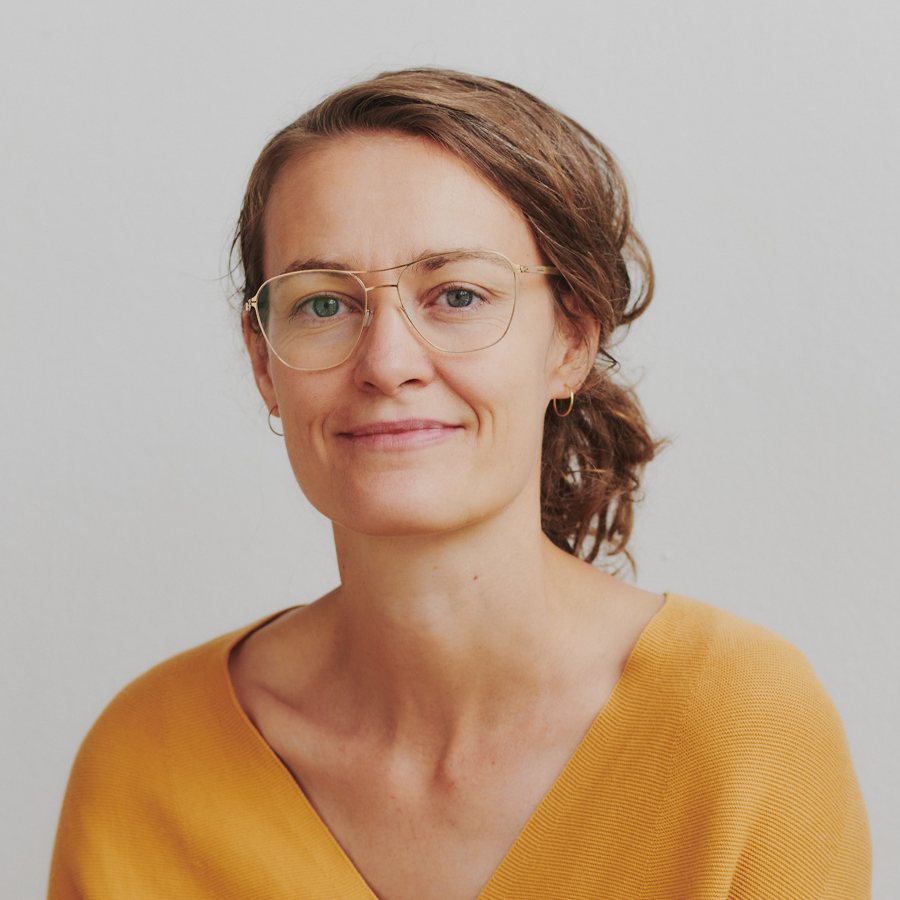
I am a woman, and I have a uterus. That biological detail has formed my life. I have lived with periods, cramps and mood swings since I was 13, have gone through four pregnancies which have resulted in two children, one miscarriage and one abortion. I have taken hormones which wrecked my sex drive. I have had my fair share of pap smears (the check at the OB/GYN to catch cervical cancer early), pregnancy scares, annoying condoms, birth scars and everything that comes with having that pretty incredible uterus — where children are born from. In short, I have had a perfectly normal life for being 37 years old, fertile and sexually active.
So, this life experience is shared with half of the world’s population. It should be no surprise that knowing what is going on in our bodies would be really helpful — actually a necessity — for navigating life’s great moments, such as having a first period, having babies, avoiding having babies, entering menopause, managing disease and managing mental and physical well being. Having information about what’s going on in our bodies allows us to make decisions with intention throughout our lives and stay healthy.
Nevertheless, I have over the last years found myself in meeting rooms across the U.S. and Europe, trying to convey the reality, experience and emotions around this fundamental part of women’s lives, and the needs that technology can fulfill for female health. I have sat across, almost always, from a man or two, who will ask me, why is it relevant for a woman to track her menstrual cycle? Well, because that data informs women about contraception, fertility, mood changes, pain and symptoms of very common conditions like PCOS (polycystic ovary syndrome) and endometriosis, that 15–25% of fertile women live with. Because having high quality information and personalized insights enable us to navigate life, inform our healthcare providers, talk to our partners… the list goes on. In short, it is essential to know what is going on to take good care of ourselves, and live our lives, in tune with our biology, not in spite of it.
I know this for myself, but I also know this from the millions of people all around the world who are using Clue and from the emergence of services and products aimed at female health, many of them digital.
Here are some of the answers people tweeted when I asked why they use Clue, why they track their female health:
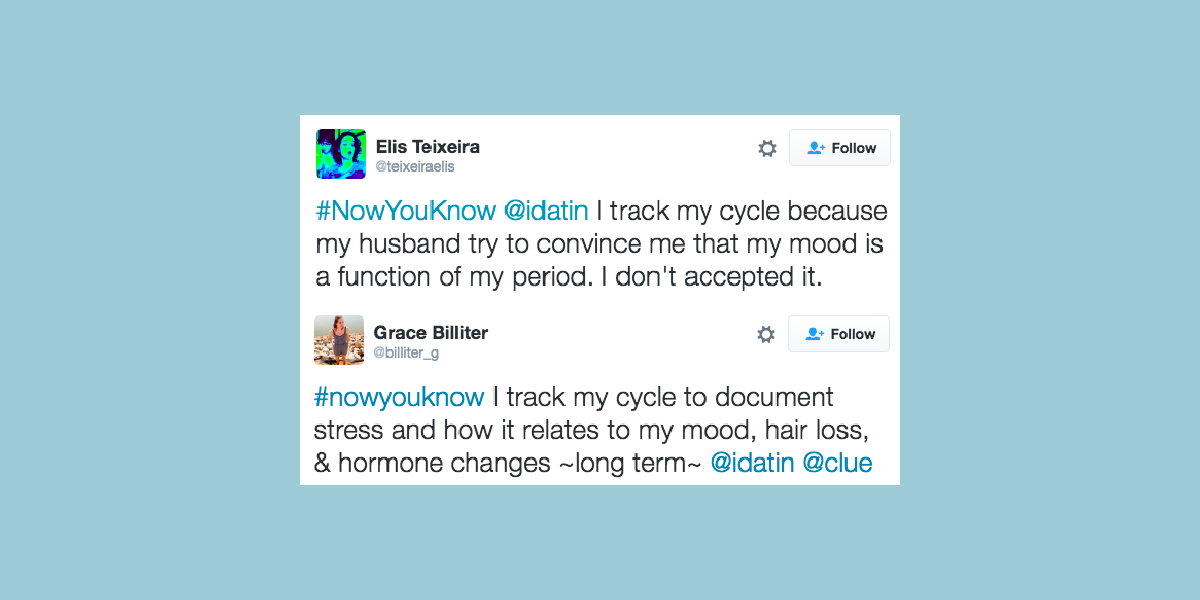
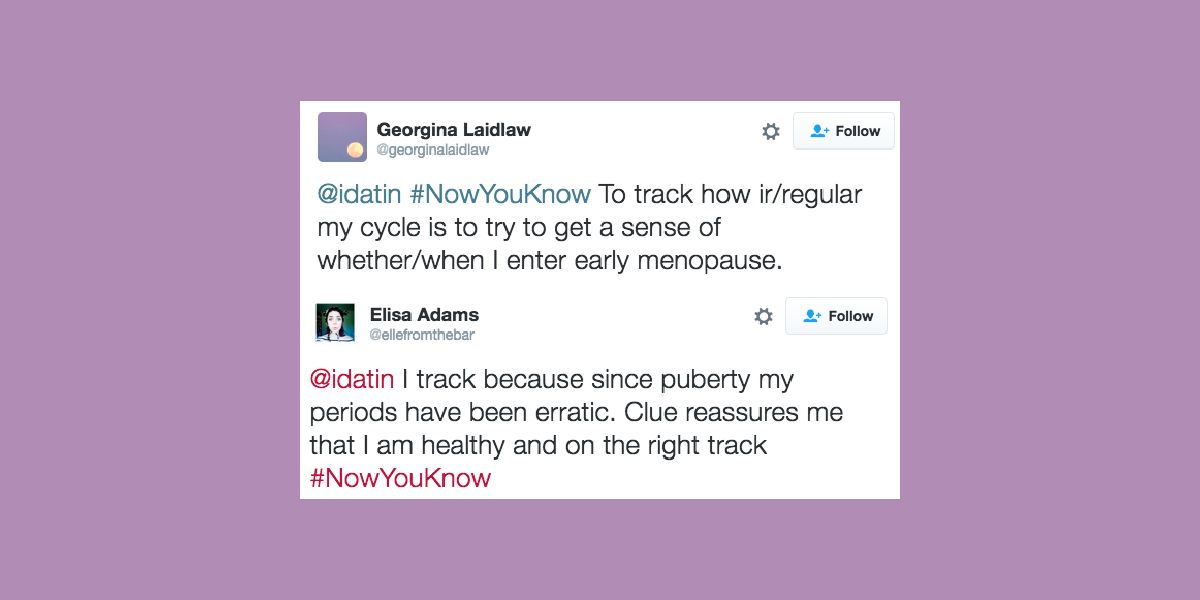
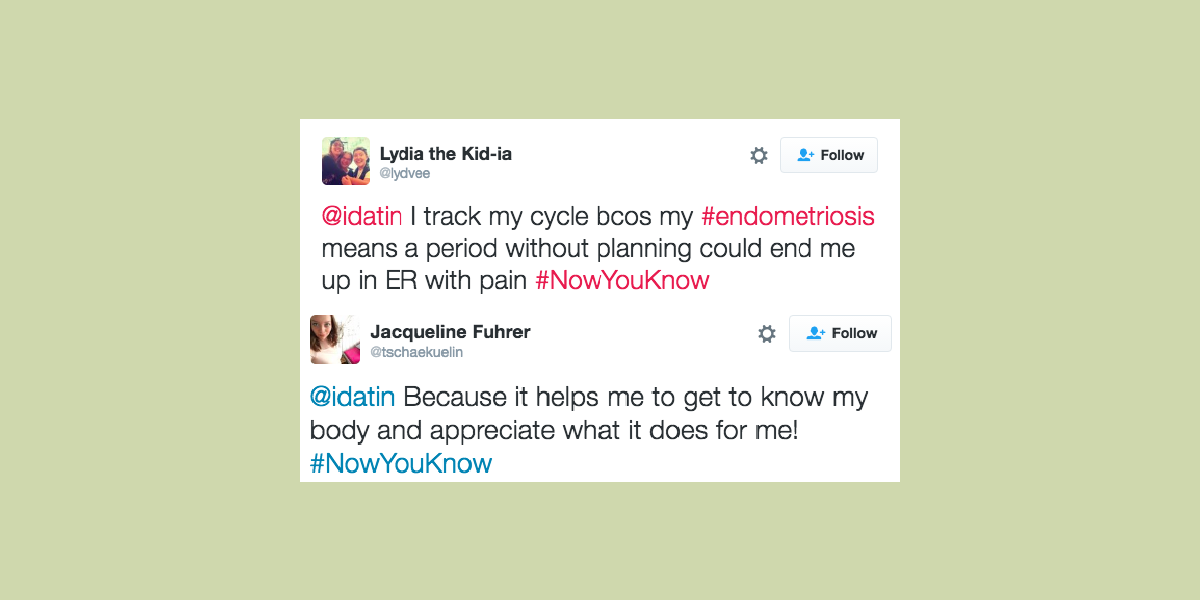
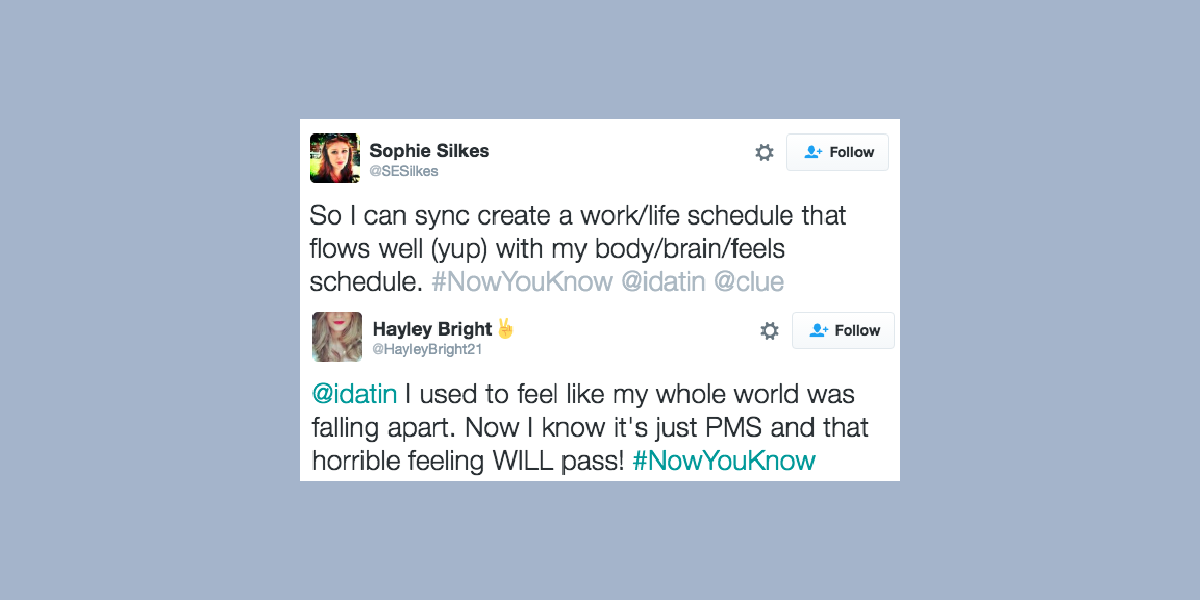
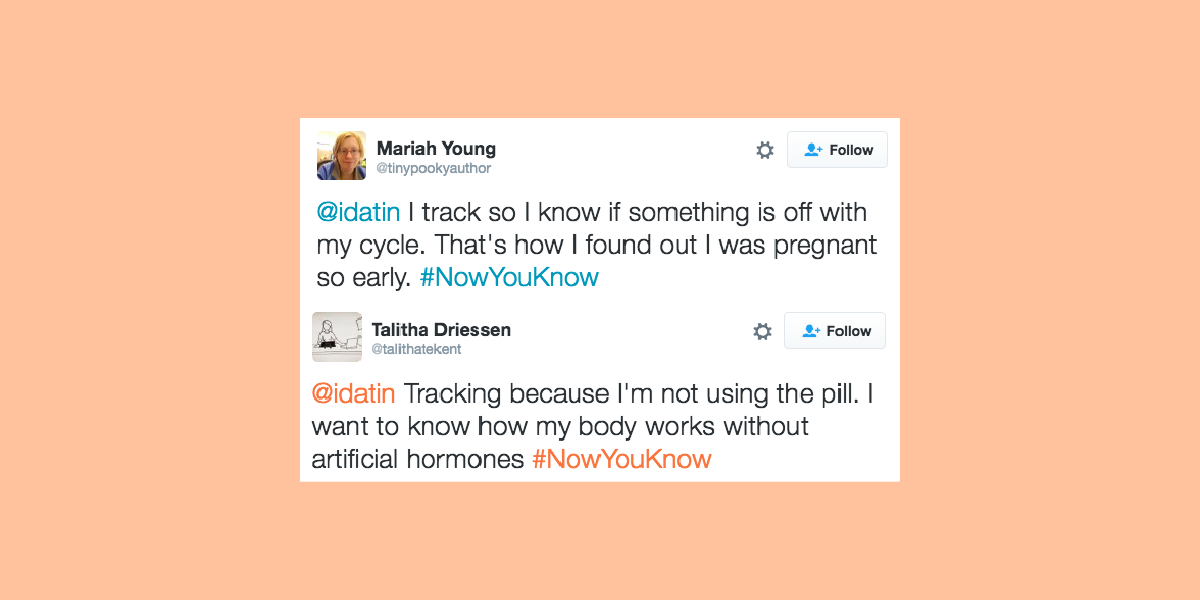
Those voices are in the conference rooms with me, and I explain what it feels like to be on this journey of female health. I appreciate the many men who see what all women know for a fact, and so many men genuinely want to understand about the health of their loved ones, and actually do whatever they can to support them. The venture capital funds have huge opportunities in female health, a mega wave of technology the world is hungry for.
I don’t know how many times I have seen VCs turn to their spouses, daughters, friends and colleagues to hear their perspectives on these topics. I encourage all of you VCs: Have women sit around the table and be part of the conversation as partners in your funds. And don’t ever again tell me that you don’t invest in products you cannot use yourself. That is a lame excuse. You invest in solar power despite the fact you haven’t installed solar panels on your roof. And you do invest in surgical robots despite not being a surgeon, or in SpaceX despite not having plans of shipping something to outer space anytime soon. Sure, you don’t invest in things you don’t understand, and that makes sense, but female health is a big opportunity, and women’s most fundamental needs should be obvious to invest in. Those who take time to understand these needs open themselves to vast opportunities.